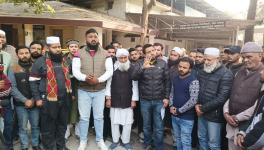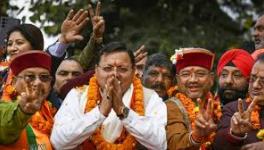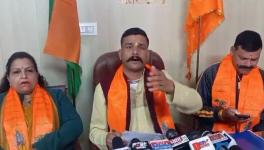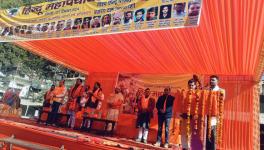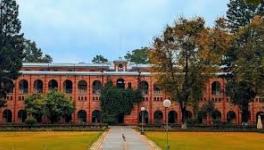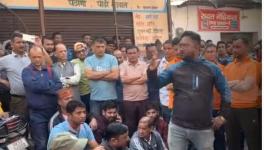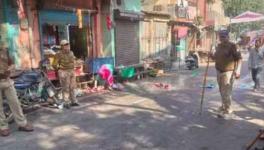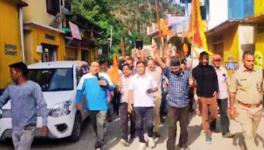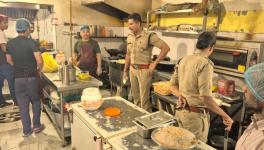Narendra Singh Negi's Musical Homage to Freedom Fighter Veer Chandra Singh Garhwali
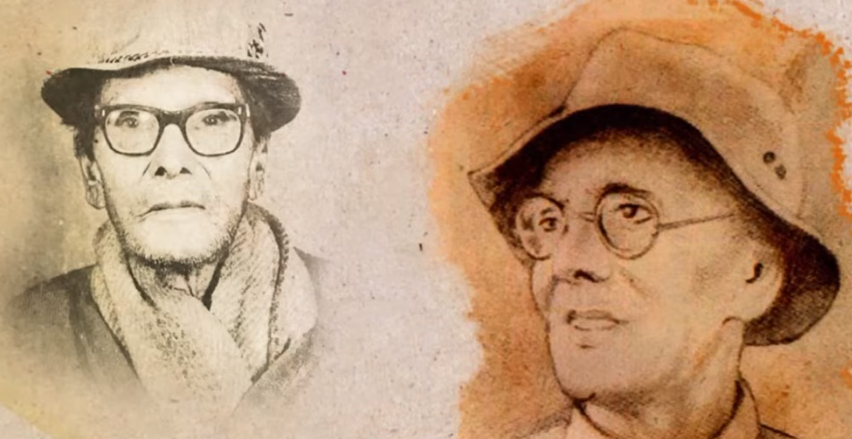
Image courtesy: YouTube/Narendra Singh Negi Official Channel
It was a much-awaited, long-overdue musical tribute in his native land of Garhwal, which Veer Chandra Singh Garhwali—one of the most eminent freedom fighters of the Garhwal hills, revered throughout the Indian subcontinent for his bravery and steadfastness during and after the freedom struggle—received from none other than Narendra Singh Negi, an iconic Garhwali singer.
Negi, an eminent Garhwali composer and singer much liked by Garhwalis worldwide, has penned a song in remembrance of Veer Chandra Singh Garhwali. The seven-minute-long audio song, released on December 1, 2023, by Narendra Singh Negi, is a tribute to the bravery of the Garhwali soldier who stood up to British imperialism and has been listened to by nearly 16,000 people to date. Although the number of listeners is much less compared to other songs by Narendra Singh Negi, which are watched and listened to by lakhs, his effort to introduce a forgotten hero from the hills to the younger generation is commendable.
The song in the Garhwali language highlights the life and struggle of Veer Chandra Singh Garhwali, his court-martial, and his incarceration and deportation to the Andaman and Nicobar Islands. The song also mentions the court-martial proceedings and his defence by the noted Garhwali lawyer of those times, Barrister Mukundi Lal.
Narendra Singh Negi has raised his voice against the political class and its corrupt practices since the inception of the separate hill state of Uttarakhand. Earlier, his video album titled Nauchami Narayan, depicting the ongoings in the Congress regime of the state led by Chief Minister N D Tewari from 2002 to 2007, was a super hit. The album's name, Nauchami Narayan means naughty Narayana as the word 'nauchami' in the Garhwali dialect means ‘naughty’ like Lord Krishna in ‘Rasleela.’
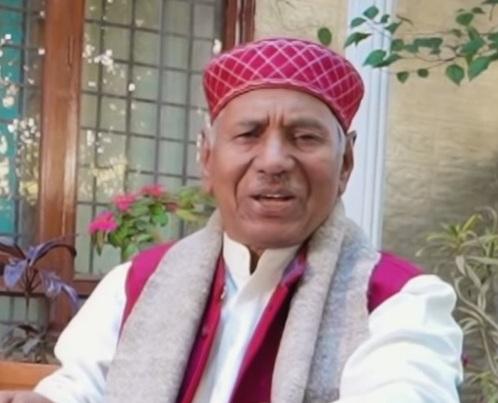
He had come up with an audio Garhwali album, Ab Kathga Khalyuo (How much will you eat), with eight songs hitting out at the then BJP-led government of Chief Minister Ramesh Pokhriyal Nishank in 2010. It had a total of eight songs, including two with political satire. One of the songs revolves around the rampant corruption at the state as well as the national level. The title song Commission ki meet-bhaat is a satire on the functioning of the top brass of the state government allegedly involved in making money through commissions.
Narendra Singh Negi, again, created a stir with his new politically satirical song titled Loktantra Ma (In Democracy), which he calls a jangeet a people’s song this year. Following an uproar over large-scale corruption in various departments, including the Uttarakhand state Assembly, where leaders and bureaucrats allegedly distributed jobs to their nears and dears, Negi hit out at the political class in September this year.
Veer Chandra Singh Garhwali, born in 1891 in the village Sansera, Chauthan Patti of Pauri Garhwal district, joined 2/36 Garhwal Rifles in 1914. He actively took part in the First World War in 1915 and also went to Mesopotamia and Baghdad with his battalion. He also served in Waziristan from 1920 to 1922. By 1926, Chandra Singh Garhwali, still in the British Army as a Havaldar Major, was impressed with the non-violent freedom movement of Mahatma Gandhi. In 1930, in view of the struggle by Khudai Khidmatgars, headed by Khan Abdul Gaffar Khan, his unit was posted at Peshawar.
It was on April 23, 1930, during a meeting of ‘Khudai Khidmatgars’ held at Kissa Khani Bazar in Peshawar after the arrest of Khan Abdul Gaffar Khan, that British officer Captain Recket ordered Chandra Singh Garhwali to fire on unarmed Pathan protesters. Garhwali refused to fire and told the British officer that they would not fire on unarmed people.
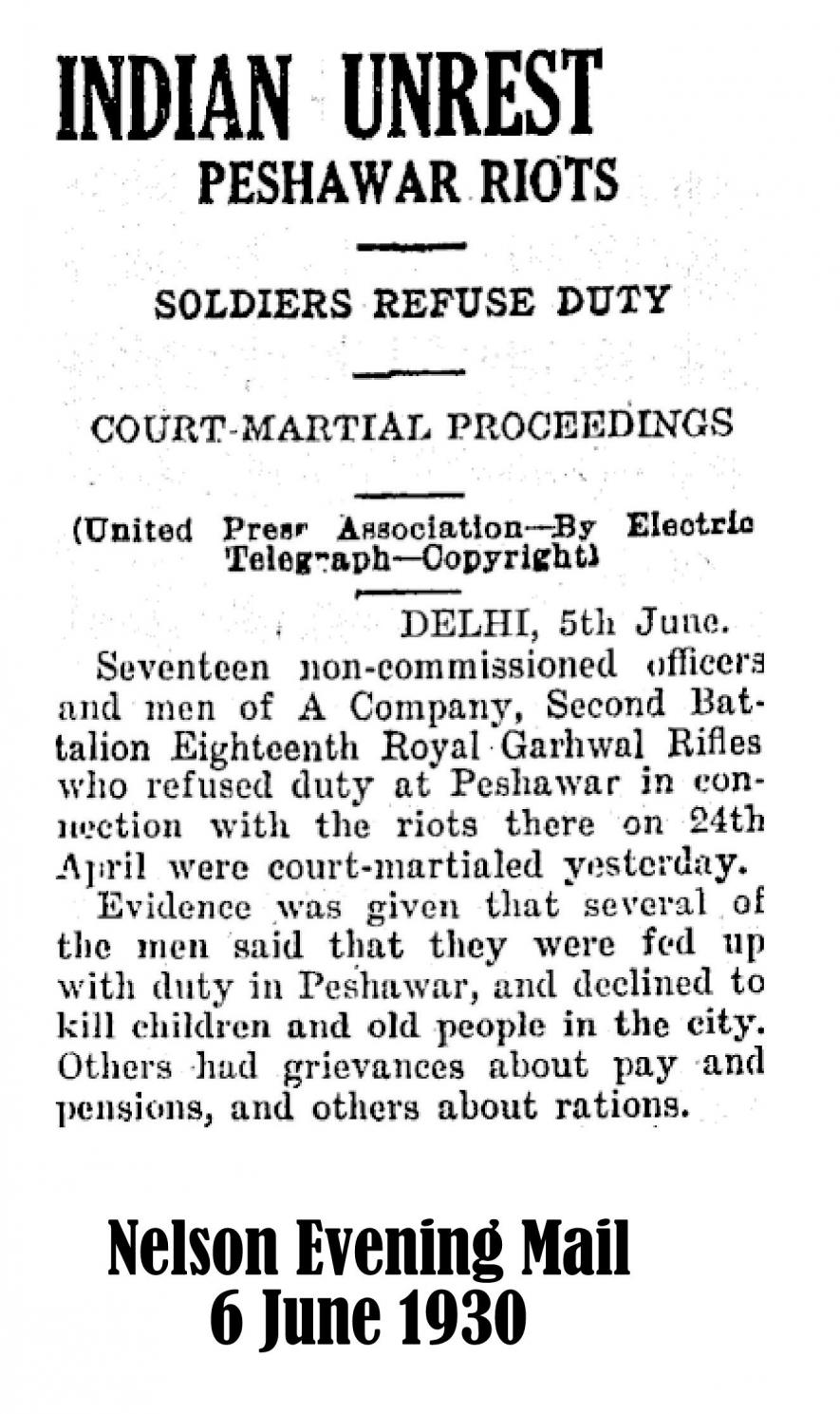
The British troops later fired on the unarmed protestors, killing many. While officials claimed that 20 persons died in the firing, unofficially the number of those killed was much higher. It was a major incident in the Indian independence movement and was considered a revolt by the army jawans against the British government after the first war of Independence in 1857. Chandra Singh Garhwali and other Garhwali troops surrendered. His battalion was detained at Abbottabad and tried for treason and court-martialed. The famous Barrister Mukandi Lal fought the case on behalf of the Garhwali troops.
Chandra Singh Garhwali was sentenced to life, while 16 others got long imprisonment. Another 39 troops were cashiered out of service after court-martial. Chandra Singh Garhwali was released from prison after 11 years in 1941 and went to Allahabad after his release, becoming the commander-in-chief of the freedom struggle. He also stayed at the Mahatma Gandhi ashram in Vardha. He was again arrested and sentenced to seven years imprisonment for his activities in 1942 and tortured. He was released in 1945. He started living in Kotdwar and also fought elections as a Communist Party candidate in 1957 but lost. He died in 1979 after a prolonged illness. The government of India released a postage stamp in his honour in 1994.

Veer Chandra Singh Garhwali, who spent nearly 14 years in imprisonment before independence, was perhaps the only person from Uttarakhand hills who spent that much time in prison for his political beliefs opposing British imperialism. Impressed by the bravery of Veer Chandra Singh Garhwali, Mahatma Gandhi had once said if he had four brave persons like Chandra Singh Garhwali with him, he would have won freedom much earlier.
After independence, he led a life of ignominy. Despite his immense sacrifices, he was only recognised by then Uttar Pradesh Chief Minister Hemwati Nandan Bahuguna in 1974. It was during a public meeting in Kotdwar that Hemwati Nandan Bahuguna was effusively praising the sacrifices of Veer Chandra Singh Garhawli when he noticed an old man raising his hand in the crowd and others trying to boo him down. To the utter surprise of Bahuguna, it was Veer Chandra Singh Garhwali who was raising his hand at his name being mentioned. Bahuguna was emotional on recognising him and brought him to the stage. Later in 1975, he allotted 60 bighas of agricultural land on lease in the Halduchor area of Bijnore district to him on a lease of 90 years.
The author is a senior freelance journalist based in Dehradun. He has worked with The Indian Express and The Tribune for over three decades. The views are personal.
Get the latest reports & analysis with people's perspective on Protests, movements & deep analytical videos, discussions of the current affairs in your Telegram app. Subscribe to NewsClick's Telegram channel & get Real-Time updates on stories, as they get published on our website.









